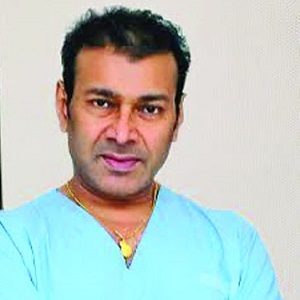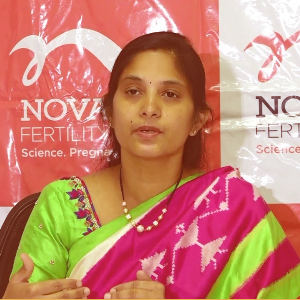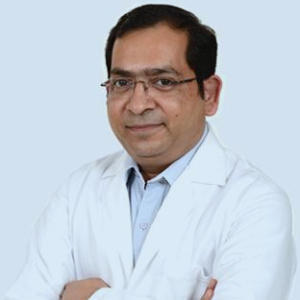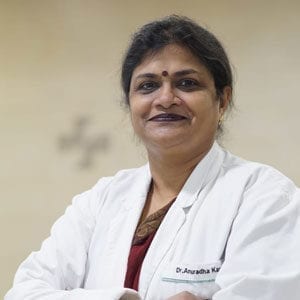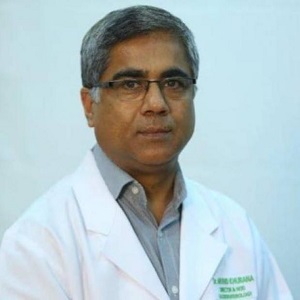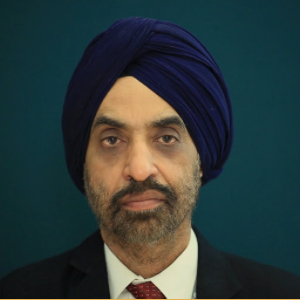Best Doctors in India for Alcoholic Hepatitis Treatment
- Medical Oncologist, New Delhi, India
- Over 20 years’ experience
Profile Highlights:
- Dr. Amit Agarwal is a highly successful Medical Oncologist whose primary focus lies on pain management in cancer patients and provides treatment specifically for the management of early stages of Hodgkin’s disease and Non-Hodgkin Lymphoma, Non-Metastatic Ewing’s Sarcoma, Cardiopulmonary Resuscitation, and emergency medications for cancer patients.
- Dr. Agarwal has been part of other prestigious cancer hospitals where he has helped in the treatment of patients with various types and rare cases of cancer.
- Urologist, New Delhi, India
- Over 42 years’ experience
Profile Highlights:
- Dr. Suresh Kuamr Rawat is one of the best Urologists in India, having a grand experience of 42 years in the field.
- His services extend into prostrate laparoscopy, TUIP, TURP, minimally invasive surgery, etc.
- Dr. Suresh Rawat is practicing as a consultant with the Department of Urology at Apollo Hospitals, New Delhi.
- Dr. Rawat specializes in neuromuscular disorders, Andrology, and complex urological surgeries. He is an expert doctor for Endourology, Uro oncology, Reconstructive Urology, Female Urology, and Pediatric Urological treatment.
- Orthopedic & Spine Surgeon, Chennai, India
- Over 33 years’ experience
Profile Highlights:
- Dr. Sajan K Hegde is an Orthopedic & Spine Surgeon with 33+ years of experience and is known for performing spine and joint surgeries using the latest technological advancements like minimally invasive sacroiliac joint fusion and cervical artificial disc.
- He has initiated many modern instrumentation systems in India including Cotrel, BAK cages, Harms Mesh Systems, and more.
- Dr. Hedge holds expertise in surgical and non-surgical spine treatments, tackling trauma, et al.
- IVF Specialist and Gynaecologist, Hyderabad, India
- Over 15 years’ experience
Profile Highlights:
- Dr. Saroja Koppala is an expert Gynecologist and Obstetrician who is highly trained and experienced in all forms of ART and has helped in achieving a large number of successful pregnancies.
- She received most of her trainings in infertility and reproductive medicine from prestigious fertility clinics in the UK and has also spent a considerable amount of time in practicing at several renowned hospitals.
- Dr. Koppala finds interest in the management of women with recurrent miscarriage, repetitive implantation failure, failed IVF cycles, endometriosis, adenomyosis and low ovarian reserve.
- Neurosurgeon & Spine Surgeon, New Delhi, India
- Over 20 years’ experience
Profile Highlights:
- Dr. Anil Kumar Kansal is a well-known neuro and spine surgeon in Delhi with over 2 decades of experience.
- He has performed over 10,000 neurosurgical procedures including 4500 brain surgeries, 500 endoscopic brain surgeries, 2000 spine surgeries, 400 aneurysms, and 500 anterior cervical microdiscectomies with 60 disc replacement procedures.
- Dr. Kansal holds great skills in aneurysm clippings, neuro-modulation, epilepsy, and neurovascular surgery and has handled several such types of cases in his career.
- Pediatric Hemato Oncologist, Gurugram, India
- Over 20 years’ experience
Profile Highlights:
- Dr. Satya Prakash Yadav is counted among the most experienced pediatric hemato-oncologists in India. His primary focus lies in Pediatric Leukemia, Bone Marrow, and Stem Cell transplantation.
- His experience exceeds over 20 years during which he has performed more than 400 bone marrow and blood transplant procedures. Among these, he has also performed over 50 Haplo identical bone marrow transplants and 50 unrelated donor and cord transplants.
- Dr. Yadav specializes in Blood Cancer treatment, Bone Marrow Transplant, Medical Oncology, and Stem Cell Transplant and has performed several such procedures with successful results.
- Obstetrician & Gynaecologist, New Delhi, India
- Over 30 years’ experience
Profile Highlights:
- Dr. Anuradha Kapur is a gynecologist with the experience of around 30 years, who is the director and head of the obstetrics and gynecology department at Max Super Specialty Hospital, New Delhi.
- She is known as one of the best gynecologists, obstetricians, and infertility specialists in Delhi treating patients who have even suffered repeated IVF failures.
- Max Hospital has awarded Dr. Kapur with the Physician Appreciation Award for her efficiency, precision, dedication, and compassion.
- Gastroenterologist, Gurugram, India
- Over 33 years’ experience
Profile Highlights:
- Dr. Arvind Kumar Khurana is a well-known name in the field of gastroenterology and has a keen interest in Gastroenterology, Hepatology, Endoscopy, Onco-Gastroenterology, and Endoscopic Ultrasound.
- Dr. Khurana has successfully performed over 1,50,000 Endoscopic procedures, including over 20000 cases of EPT/CBD stones removal & Biliary Stenting, 2000 metallic stenting, 950 cases of foreign body removal, and 2000 PEG cases.
- ENT surgeon, Gurugram, India
- Over 23 years’ experience
Profile Highlights:
- Dr. Aru Chhabra Handa is a famous ENT surgeon practicing in Medanta, Gurugram who is trained in oto-rhino-layrngology. She has expertise in treating pediatric ENT patients.
- Highly experienced in all kinds of routine and advanced surgeries of the ear, nose, and throat, she is also an expert in rhinoplasty, micro ear surgery, neuro ontological disorders, endoscopic nasal and sinus surgery, as well as phono surgery.
- Throughout her career of over 23 years, Dr. Aru Chhabra Handa has served in various reputed hospitals in North India. She has also treated several cases related to tonsillitis, epistaxis, pharyngitis, ear infection, voice and speech disorders, and throat cancer.
- She is known to be among the few ENT specialists in India, specializing in adult as well as pediatric cases. She has also taken up several complex cases in her career before she joined Medanta.
- Dr. Handa also has around 40 publications in several international and national journals as well as book chapters. She is also known for being a panelist and guest faculty in several CMEs, workshops, and conferences.
- Cardiologist, New Delhi, India
- Over 32 years’ experience
Profile Highlights:
- Dr. Balbir Singh is a reputed cardiologist with over 32 years of experience, considered a veteran in his field, both nationally and internationally.
- He has also pioneered several minimally invasive cardiology surgical techniques in India and has been honored with the prestigious Padma Shree Award for his exceptional performance.
- “LIMCA” Book of Records also highlighted Dr. Balbir Singh’s contribution to the medical field in the Indian Electrophysiology Journal.
Best Hospitals in India for Alcoholic Hepatitis Treatment
ALCOHOLIC HEPATITIS
Alcoholic hepatitis is a liver infection, which is mainly caused by frequent, heavy use of alcohol. Fat can build up in the liver cells, which might lead to inflammation as well as scarring of the liver.
Alcoholic hepatitis might be mild or severe. A patient might even need a liver transplant if proper treatment is not provided, or if they don’t stop consumption of alcohol.
It is also notable that all heavy drinkers don’t develop this condition, and sometimes this condition even develops in people who drink moderately. However, if you are diagnosed with this condition, it is important for you to quit drinking alcohol. People who continue drinking alcohol might face a huge risk of serious liver damage as well as death.
Symptoms
Depending on the amount of damage to the liver, the symptoms can vary. If you are having a mild form of the disease, you might not even experience any symptoms at all. However, as the damage continues to grow, you might experience the following:
- Changes in appetite
- Dry mouth
- Weight loss
- Pain or swelling in the abdomen
- Jaundice, or yellowing of the skin or eyes
- Fever
- Nausea and vomiting
- Easy bleeding or bruising
- Changes in your mental state, including confusion
- Fatigue
The symptoms of this condition are similar to those caused by a few other health conditions. Therefore, if you develop any of these symptoms, it is best to get a proper diagnosis as well as begin treatment.
Causes & risk factors
Alcoholic hepatitis generally develops when the alcohol you drink causes damage to your liver. However, it is not clear why alcohol does this damages only to some heavy drinkers.
Few factors that are known to play a role in this condition include:
- The body’s process that breaks down alcohol produces some toxic chemicals
- These chemicals can trigger inflammation that can destroy the liver cells
- Thus, over time, scars replace healthy liver tissue, thus interfering with the function of the liver
- This irreversible scarring, which is also termed cirrhosis, is the final stage of alcoholic liver disease
If you have hepatitis C and continue to drink, even moderately, you are more likely to develop cirrhosis.
Some heavy drinkers are also malnourished because they don’t eat a proper balanced diet. Alcohol and its byproducts also prevent the body from absorbing nutrition properly. Lack of nutrition can contribute to liver cell damage.
Some other risk factors that can lead to this condition include:
- Your sex- Women are usually at a higher risk of developing alcoholic hepatitis since the way alcohol is processed in women is different.
- Binge drinking- Having over five drinks within two hours for men and four or more for women can increase the risk of alcoholic hepatitis.
- Obesity- Heavy drinkers who are overweight are also more likely to develop alcoholic hepatitis and to progress from that condition to cirrhosis.
- Race and ethnicity- Hispanic and Negroid people might be at higher risk of alcoholic hepatitis.
- Genetic factors- According to studies, there may be a genetic component in alcohol-induced liver disease. However, it is difficult to separate genetic and environmental factors.
Diagnosis
If you are showing symptoms of alcoholic hepatitis, your doctor will first inquire about your medical history and alcohol consumption. Next, he/she will perform a physical exam to see if you have an enlarged liver or spleen. They might also need a few more tests to confirm your diagnosis, such as:
- Complete blood count (CBC)
- Liver function test
- Ultrasound of the liver
- Abdominal CT scan
- Blood clotting tests
In some cases, a liver biopsy might also be needed to confirm the diagnosis of alcoholic hepatitis. A liver biopsy requires your doctor to remove a tissue sample from your liver, which is then tested in the lab. This method helps to show the severity and type of liver disease.
Treatment
Stopping alcohol consumption is the most important treatment for alcoholic hepatitis. There is no cure for this condition, but treatment can help in reducing or eliminating symptoms, or stopping its progression.
It is also important to note that scarring of the liver is permanent, but treatment can aim to restore as much function as possible.
Dietary changes
Medication
Liver transplant
The best hope of recovery is to be aware of the signs and symptoms as well as to reduce, manage, or if possible, completely stop consumption of alcohol.
Complications
Alcoholic hepatitis might lead to severe other complications such as:
- Enlarged veins (varices)- In this condition, blood that is unable to flow freely through the portal vein, can back up into other blood vessels in your esophagus or stomach.
- Hepatic encephalopathy- This condition can be caused by the buildup of toxins if your damaged liver is unable to remove all the toxins from your body. It involves confusion, drowsiness, and slurred speech.
- Ascites- Ascites is a condition in which the fluid that accumulates in the abdomen may get infected and thus, require treatment with antibiotics. Although this condition is not life-threatening, it can be a sign of advanced alcoholic hepatitis, or cirrhosis.
- Kidney failure- A damaged liver affects blood flow to the kidneys, thus resulting in kidney failure.
- Cirrhosis- The scarring of the liver might lead to liver failure.
Prevention
Alcoholic hepatitis might be prevented if you take the following steps:
- Drink alcohol in moderation, if at all- For healthy adults, moderate drinking means no more than one drink a day for women of all ages and men older than 65, and not over two drinks a day for men aged 65 and younger. However, if you prevent all alcohol, it is a certain way to prevent this condition.
- Check before mixing medications and alcohol- Ask your doctor if it’s safe to drink alcohol while you are taking medications. Consider reading the warning labels on over-the-counter medications as well. Don’t drink alcohol when you are taking medications that warn of complications when combined with alcohol.
- Protect yourself from hepatitis C- Hepatitis C is an infectious liver disease that is caused by a virus. If it is left untreated, it may lead to cirrhosis. If you are having hepatitis C and you consume alcohol, you’re generally more likely to develop cirrhosis than if you don’t drink.



